Multilateral lenders and private sector ratify partnership and joint work with IICA on food security, sustainability, green infrastructure, trade and integration
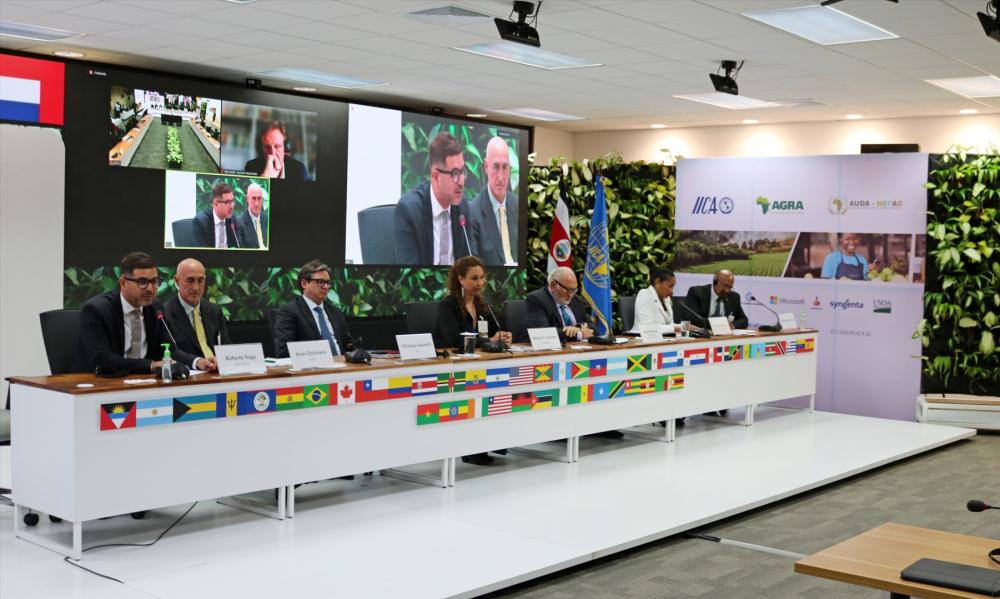
San Jose, 29 July 2022 (IICA) – Multilateral lending, cooperation and private sector organizations called for deeper joint work with the Inter-American Institute for Cooperation on Agriculture (IICA) with a view to transform the agrifood systems, improving conditions of productivity, sustainability and inclusion in the agriculture sector of the Americas and the world.
The call—conveyed in a joint commitment made at the first ever Africa-Americas Ministerial Summit—included the announcement of work in areas such as regenerative agriculture; food security; digital education and connectivity; training; green financing; and establishing new platforms for sharing knowledge, experiences and ties involving governments and national science, technology and innovation systems.
“If we want to change the reality of 20 million young people who neither work nor study, who live in poverty, the millions who live with food insecurity, we must do so together, not just with ministries, but with multilateral spaces, with the private sector. We’re here to ratify a strategic alliance with IICA and we support all efforts because this is a process and it must be continuous”, expressed Christian Asinelli, Vice President of CAF-Development Bank of Latin America.
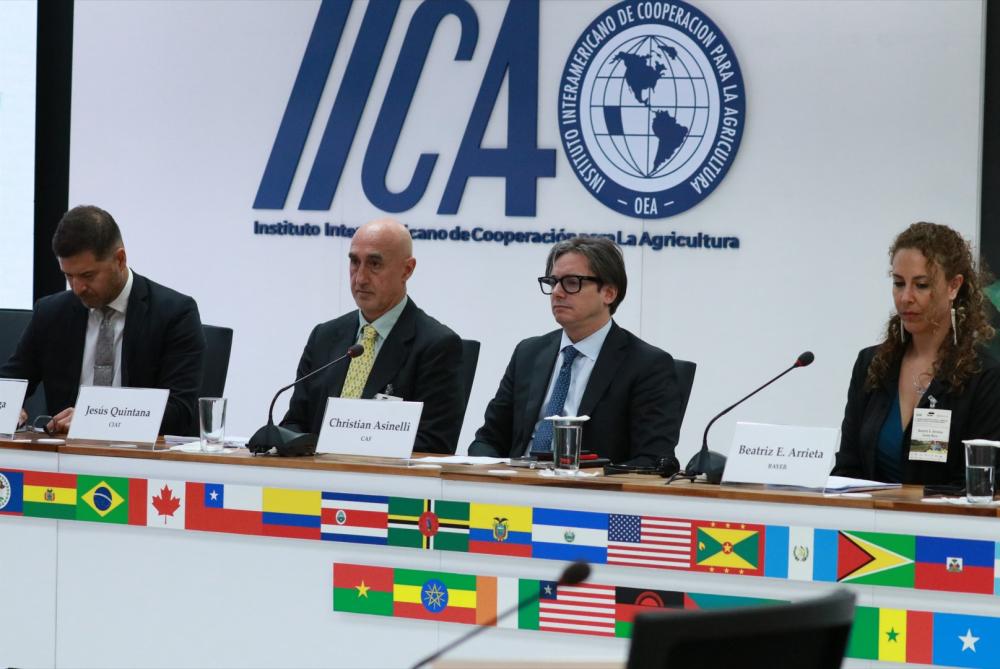
In the framework of the first ever Africa-Americas Ministerial Summit on Agriculture, the senior financial executive shared the “Strategic Alliances” panel with representatives from Bayer, Microsoft, Rabobank, Syngenta and the United States Department of Agriculture, all of which supported the three-day summit at IICA’s headquarters in Costa Rica.
“We believe that Latin America and the Caribbean should be protagonists. We want to be the bank for the reactivation of our countries, to be the region’s green bank to accompany the countries in their commitments to turn around and start caring for our common homeland. Our commitment is for 40% of our operations in the coming years to be approved with components relating to sustainability. We must make this commitment with our partners, and our partnership with IICA is key in this regard. We want to work so that our region is relevant in the future, because global problems such as climate change, food insecurity and others cannot be solved without this region”, added Asinelli.
Jorge Werthein, Special Advisor to IICA’s Director General, moderated the roundtable in which Beatriz Arrieta, Regional Manager, Food Value Chain at Bayer, summarized the joint work conducted by the company and IICA on topics of soil health, training, plant health and regenerative agriculture, among other key issues.
“We established sustainability objectives that we are able to achieve through our cooperation with IICA. Being part of the partnership with Africa is important for Bayer to make progress in its objectives. We are challenged with feeding the world, which is only possible through collaboration such as this one with IICA, in which we bring new technologies and innovation to farmers. This is our focus and we invest large amounts of resources in giving farmers what they need”, explained Arrieta.
“We work to make IICA projects a reality in the countries and we’re convinced that we can transform agriculture through cooperation. We’re ready to implement new projects in Africa and we need partnerships like those established at this Summit to make progress in our vision to feed the world with healthy, nutritious, quality foods”, she added.
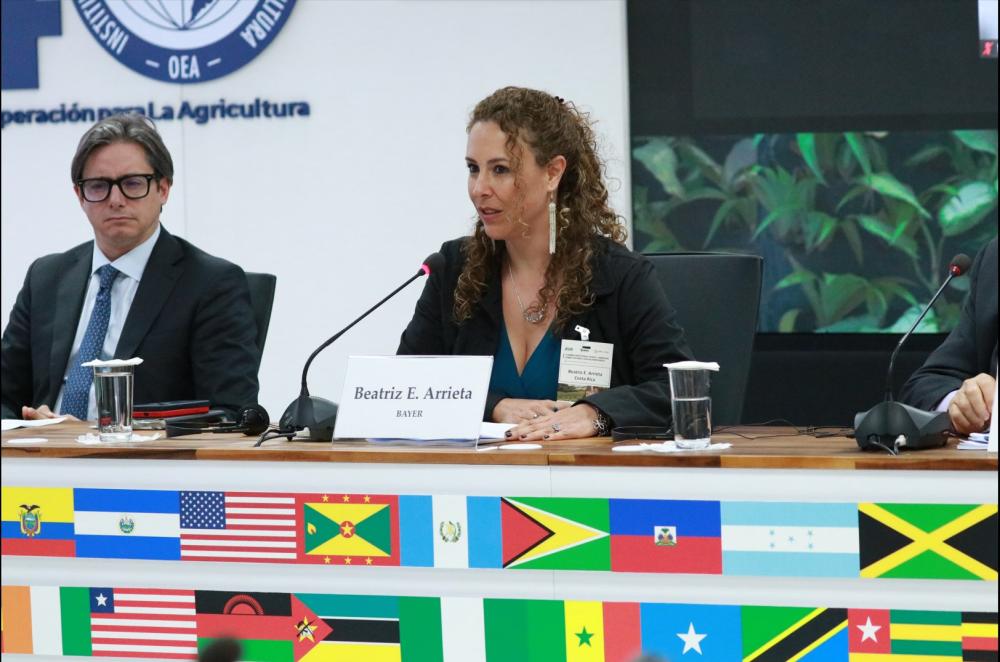
Luciano Braverman, Senior Director of Education for Microsoft Latin America, highlighted the joint work of the global tech giant and IICA gear toward promoting digital connectivity in rural areas and developing digital skills among the rural population.
Recently, in collaboration with Microsoft and with the support of the World Bank, IICA launched the Agroedutec program with the Office of the Chief of Cabinet of Ministers of Argentina and the ministries of Education and Agriculture, which would train 5,000 students in 100 agrotechnical schools across Argentina in digital technologies and their application in agriculture.
The program was conceived by Microsoft and IICA and considers agrotechnical schools to be strategic pieces in the productive development of rural areas and in creating a sense of belonging in young people to the countryside.
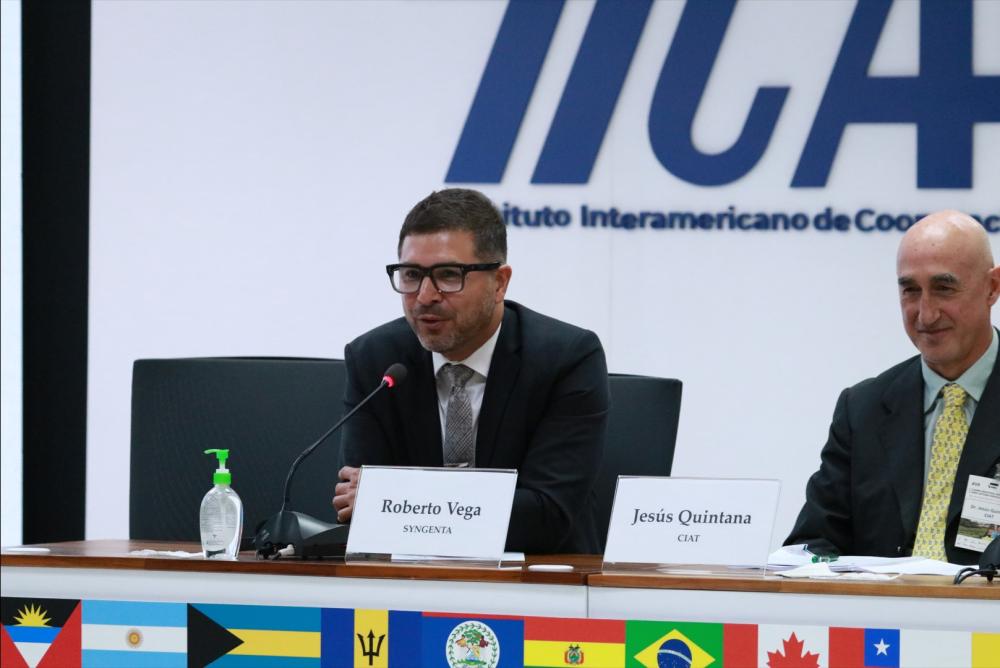
“
“We ratify the commitment and partnership between Microsoft and IICA, which has been very fruitful. Food security is a hot topic and its connection to the digitization of agriculture makes it an important issue in these discussions. A connected population has more possibilities to generate income and be more productive”, said Braverman.
“Acquiring digital competencies is key to changing the quality of rural life. This is part of our mission. In terms of digital agriculture, here at Microsoft we are facing the challenges of the agriculture of the future. We are facing challenges that require collaboration between the public and private sectors, which is decisive in improving production and income”, he added.
In turn, Roberto Vega, Global Head Value Chain at Syngenta, stated that “finding joint solutions is fundamental and critical for the situations we are facing, and this Summit plays an important role in that”.
He added: “We are speaking with over 40 countries about soil conservation, biodiversity, reducing agriculture’s impact on climate change and empowering small-scale producers. These initiatives are very much aligned with our company’s strategies. The poverty we see today is amoral—as citizens of the world we cannot allow it. With our current knowledge and tools, we can overcome it if, as stakeholders, we commit to really working together”.
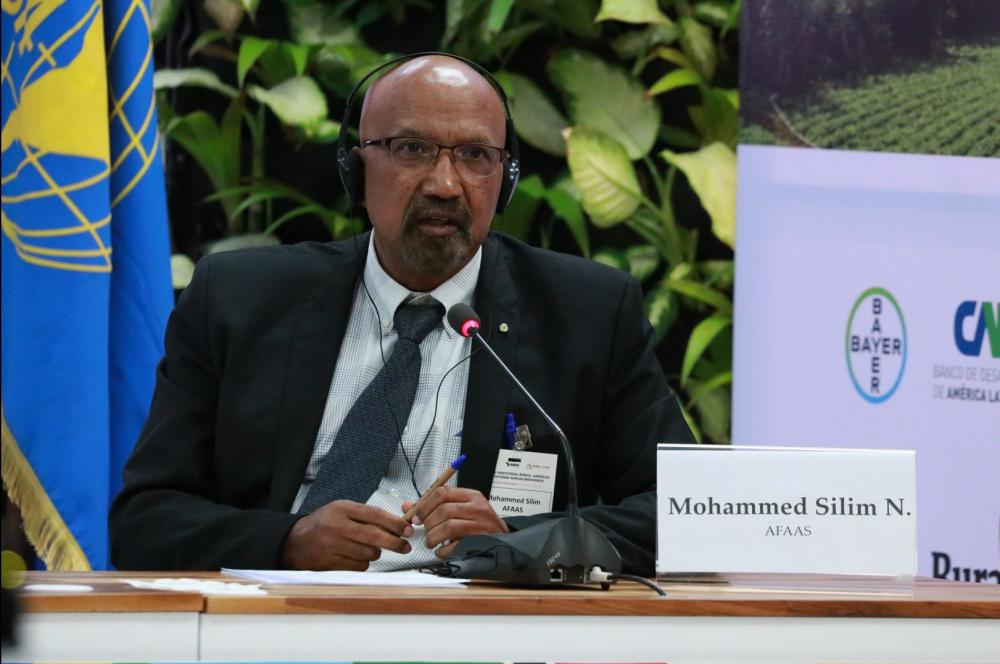
Jesús Quintana, Director General of CIAT (International Center for Tropical Agriculture) and Managing Director of the Alliance of Bioversity International, underscored the value of the Africa-Americas joint work. “I haven’t seen this before. It’s not normal for the organizations of two continents to meet with such a willingness to make proposals, with partners who bring ideas, resources and initiatives. It’s historical and the topics are also historical; we’ve spoken about almost everything from climate change to trade; it’s a fruitful dialogue that can take us far. IICA has been fundamental, with almost 80 years at the head”.
Bernard Jacobus Martti, a member of the Board of Directors of Rabobank, stated that: “this Summit has given us an excellent opportunity to help accelerate opportunities for transformation, to recognize the need to integrate the true cost of food and programs to increase the flow of fertilizers to producers. The role of science in providing solutions, in overcoming insufferable afflictions like poverty and hunger, and in doing so inclusively and resiliently, is fundamental”.
Mohammed Silim Nahdy, Executive Director of the African Forum for Agricultural Advisory Services (AFAAS), expressed that “the importance of this meeting is to catalyze society in both continents. The challenges we face are very similar and we can find solutions together. The alliances can be strategic, operative or activity-based. They are all important and we encourage their endorsement. IICA can work with representatives of the African Union to mobilize these partnerships”.
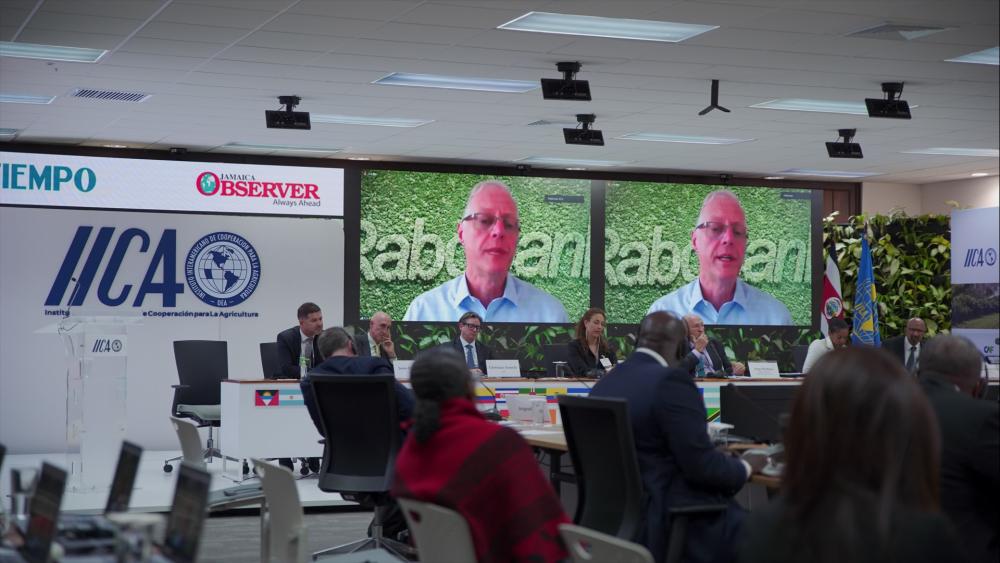
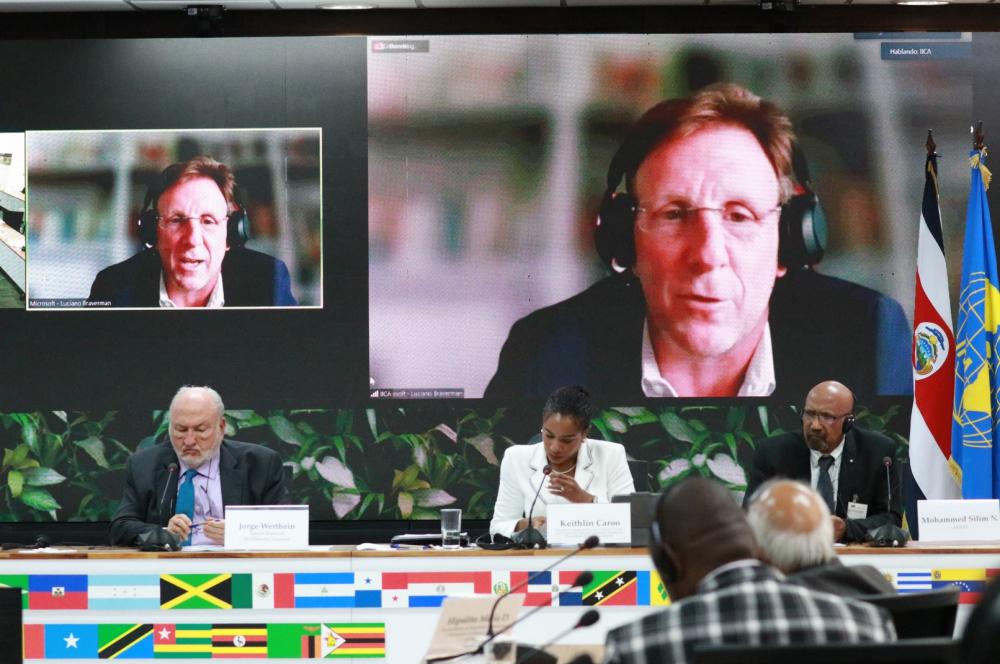
More information:
Institutional Communication Division